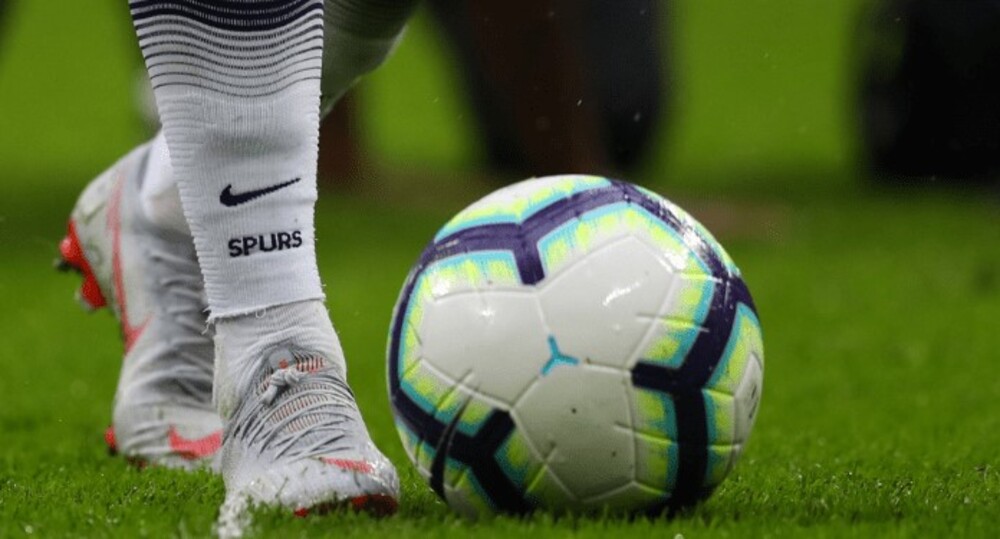Zona de Azar Brazil – The Importance of Integrity in Sport and Sports Betting

 Brazil.- Novembrer 18th 2022 www.zonadeazar.com The sports scene is evolving more and more around the world, and with this evolution, we also have to pay attention to the integrity of the sport. Caution must be considered in all fields, be it sports betting, athletes and even sporting principles.
Brazil.- Novembrer 18th 2022 www.zonadeazar.com The sports scene is evolving more and more around the world, and with this evolution, we also have to pay attention to the integrity of the sport. Caution must be considered in all fields, be it sports betting, athletes and even sporting principles.
Currently we see more companies and entities investing in this sector, with a focus on creating an increasingly safe environment for all fans, amateurs and professionals. In addition, this type of investment is essential for us to have a healthy and valued sports betting market. UOL published in its column ‘Lei em Campo’ a piece of news that portrays this scenario and highlights the importance of integrity in sports betting and sports in general.

Still without regulation, sports betting sites are already a reality in football, in the world and in Brazil. But can the athlete have any involvement with sports betting? The answer is so obvious, but it remains necessary: no! Neither an athlete nor any member of the football association chain. This happens in the name of two principles dear to sports law, integrity and fair play.
Sport thrives on uncertainty
The fun of sport is in the uncertainty of the outcome. If everyone knew ahead of time what the score of a game would be, the sport would lose steam and passion would shrink. That is why several of the principles of sports law aim to guarantee this unpredictability, such as sporting integrity, fair play, and parity of arms, which is to give equal conditions to competitors. That is why it is fundamental, among other things, to combat the manipulation of results. And this is not a problem that arises now, with the profusion of betting sites. It is old, and therefore has received the attention of the sport for a long time.
The “CBJD” of 1942 already brought punishments against match-fixing
Professor Wladimyr Camargos recalled, in a column in Lei em Campo, that the resolution of the National Sports Council (CND), of 4/11/1942, which brings the first General Law of Sport, dealt with a theme that was very important in the days of today: the manipulation of results of matches and competitions. The original text thus governed the matter: 33.1.d) participation in or complicity in an attempt at bribery, intended to cause, promote or facilitate the defeat of a team, as well as the fact of being aware of the attempt and not reporting it immediately 35.
Anyone who, directly or indirectly, induces or tries to induce the athlete to proceed, on the field, in a manner that is disadvantageous to the team to which he belongs, or to any referee or linesman, with the purpose of persuading him to perform, will be subject to serious punishment. of the function, in a way that ensures or facilitates the victory of a certain association. Once the infraction has been determined, the person responsible will be disqualified [sic] from holding a position or function in a sports entity and from being a member, athlete, manager, coach, masseuse or employee at the service of sports. If the fact or facts included in this item results in the responsibility of any sporting entity, this will be suspended and, in the event of recurrence, the right to operate will be revoked by the C.N.D.
That is, the transcribed devices aimed to protect high-performance sports against attitudes that acted against the equality of sports. Even back in 1942, when Sports Law was beginning to be understood and applied in Brazil, the need to protect the integrity of sport was already visible. And even today, sport in Brazil and in the world is threatened.
Tennis, football?
In football, basketball, tennis… rare are the sports in which there is no news of criminals wanting to attack the integrity of the game in exchange for personal benefit. Modern betting sites have also suffered great damage from this ancient practice. With the rapid and strong growth of bookmakers around the world, one of the biggest problems to be fought by the sports industry has certainly become match fixing.
According to data from its latest report, the International Betting Integrity Association (IBIA), considered the main entity on integrity for the licensed betting industry, pointed out that regulated online sports betting operators lose something close to US$ 25 million (R $131 million) a year for this harmful and criminal practice. The number frightens and serves to reinforce the thesis that, in addition to sports, sports betting companies are also greatly harmed by manipulation.
The sport acts
Responsible for investigating match-fixing in tennis, the TIU is an anti-corruption body that oversees professional tennis. The organisation, which was created in 2008 on the initiative of the ITF, ATP, WTA and the four Grand Slam tournaments (Australian Open, French Open, Wimbledon and US Open), has a zero tolerance policy for corruption related to betting.
Independently operated and based in London, TIU is funded by the organizations responsible for its creation. In addition to combating corruption, it investigates and reprimands offenders.
Importance of sport self-regulation
In football, monitoring work, with the help of science and technology, has become vital to combat these increasingly sophisticated gangs. The São Paulo Football Federation, for example, does a very good job of monitoring manipulation. In addition to the role of the State, which works to investigate cases of money laundering and tax evasion, judge and punish, the sport also needs to act and protect itself.
Including, regarding betting, Fifa brings in its Statute, in art 2, the “commitment to combat the manipulation of results, defending the integrity of competitions”. And, in the Code of Ethics (26.2), it states that “persons subject to this Code are prohibited from participating, directly or indirectly, in betting, lotteries or similar events…”
Fifa sets general guidelines. But national associations and clubs can expand these limitations. The CBF has rules and many clubs have placed a ban on “any type of relationship with betting sites” in contracts with athletes. In addition, the contract must state that the athlete (coach) has no interest in a company or partnership with an organization promoting or organizing this type of activity.
Now, it is essential that everyone adopt practices that contribute to the preservation of the principles of sport, protecting fair play and sporting integrity. Always remembering that ethics in sport transcends the mere observance of the rules determined in codes and regulations. Ethical principles are non-positive conventions that guide the way we act. In other words, protection!
Doing it right because it’s right
Like football, volleyball, basketball, tennis? they need to protect themselves from match-fixing, guaranteeing something that is the essence of any sport: fair and equal competition. Now, in addition to adopting practices and rules that contribute to the preservation of the principles of sport, protecting fair play and sporting integrity, it is essential not to forget the basis of sport and social behavior. Ethics in sport transcends the mere observance of rules determined in codes and regulations. Ethical principles are non-positive conventions that guide the way we act.
Edit by: @Natalia www.zonadeazar.com